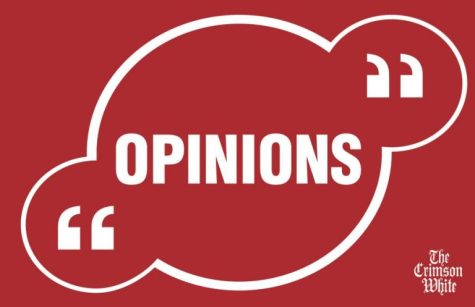We should not rely on political labels
April 1, 2019
In today’s political discourse, it seems as though the one item of discussion that reliably rises to the forefront of the conversation is labeling. Regardless of one’s true political affiliation, those who hold strong ideas about what should be done with our country are in minor cases labeled as “bigots” and in more extreme cases are even called names such as “communists” or “Nazis.”
If one does truly self-identify with one of these political parties, it is more than okay to label them with accuracy. But for those who simply belong to the right or left, these labels are dismissive of an individual’s beliefs, and more importantly, destructive to any sort of meaningful political conversation that could solve the problems Americans face.
Labels are an important part of life. They allow us to identify everything, from the ingredients in our food to the building holding the class we were supposed to be in 15 minutes ago. Such black-and-white thinking has allowed us to have a functional and productive society, but when it comes to someone’s political identity, it is usually not that simple. Oftentimes, those who identify as Republicans or Democrats are really somewhere in the middle. Even those who align themselves with the Libertarian Party or the Green Party can find items within the platforms of those parties that they don’t necessarily agree with.
So why should we care about how we politically label someone? For starters, those who receive labels with a negative connotations are oftentimes ostracized from society or certain social circles, despite holding viewpoints that could potentially have a positive impact. Furthermore, those with negative labels are sometimes completely dismissed from the political arena. One simply has to turn on a news channel to hear about how President Donald Trump is a “bigot,” and for that reason, none of his policies can be supported. For instance, there was very little political pushback during the Obama era when he allowed for the deportation of almost 34,000 people monthly during his peak year, whereas any sort of deportation measures proposed by Trump are met with cries of racism. Why is this? It is possibly because Trump has been labeled as a racist and a bigot, while Obama was not.
In an America where the average citizen is becoming seemingly less and less informed, people rely more on the labels placed on others to make decisions, rather than the actual policy, character and ideals of an individual. This means that our reliance on labels is beginning to take precedence over actual information, leading to a more ignorant, and therefore weaker American society as a whole. We must stand up to the political labels, mudslinging and people who seek to discredit others with dissimilar beliefs. Rather than allowing the narrative to be controlled by a perception of the political party of our choosing, it is imperative that we keep the conversation focused purely on facts. Now more than ever, it is of utmost importance that we stop labeling others and see them for what they really are: people just like you or me.










